論説

概要
- Generative AI adoption is soaring, with 95% of US companies using it, up 12 percentage points in a year—production use cases have doubled, with IT seeing the fastest growth.
- More than 80% of use cases meet or exceed expectations, and about 60% of satisfied firms see business gains.
- Scaling exposes talent gaps and vendor issues, and concerns about security, output quality, and leadership support can slow adoption.
- Investment is surging: AI budgets have doubled over the past year, with 60% of allocation expected to come from standard budgets.
Generative AI is now a business staple, with 95% of companies in the US using it, up 12 percentage points in just over a year.
Adoption is deepening, too: The average number of use cases in production doubled between October 2023 and December 2024 (see Figure 1). Bain’s latest survey on generative AI readiness also shows that while software code development remains the top use case domain, IT is seeing the fastest growth (see Figure 2). It’s no surprise that most use cases focus on improving productivity and reducing costs, but many also focus on top-line growth.
In just over a year, the share of companies naming AI a top priority has jumped from 9% to 15%. About half now have clear implementation roadmaps, up 18 percentage points. But that also means half still don’t.
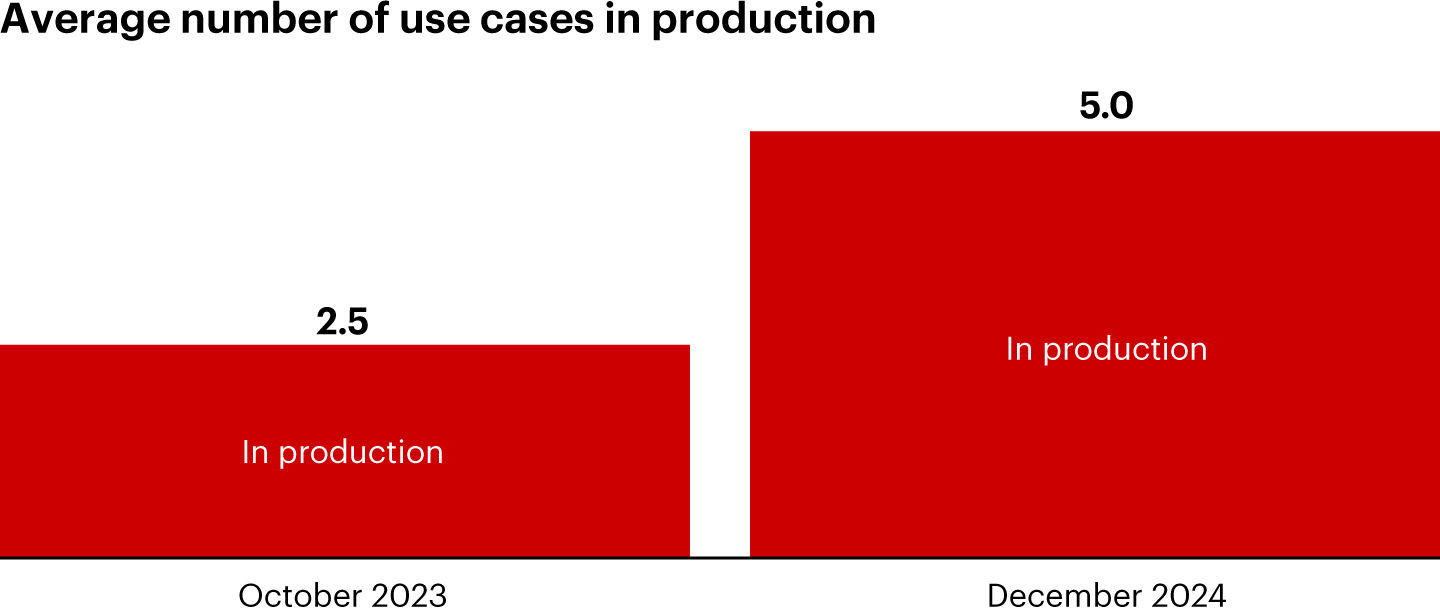

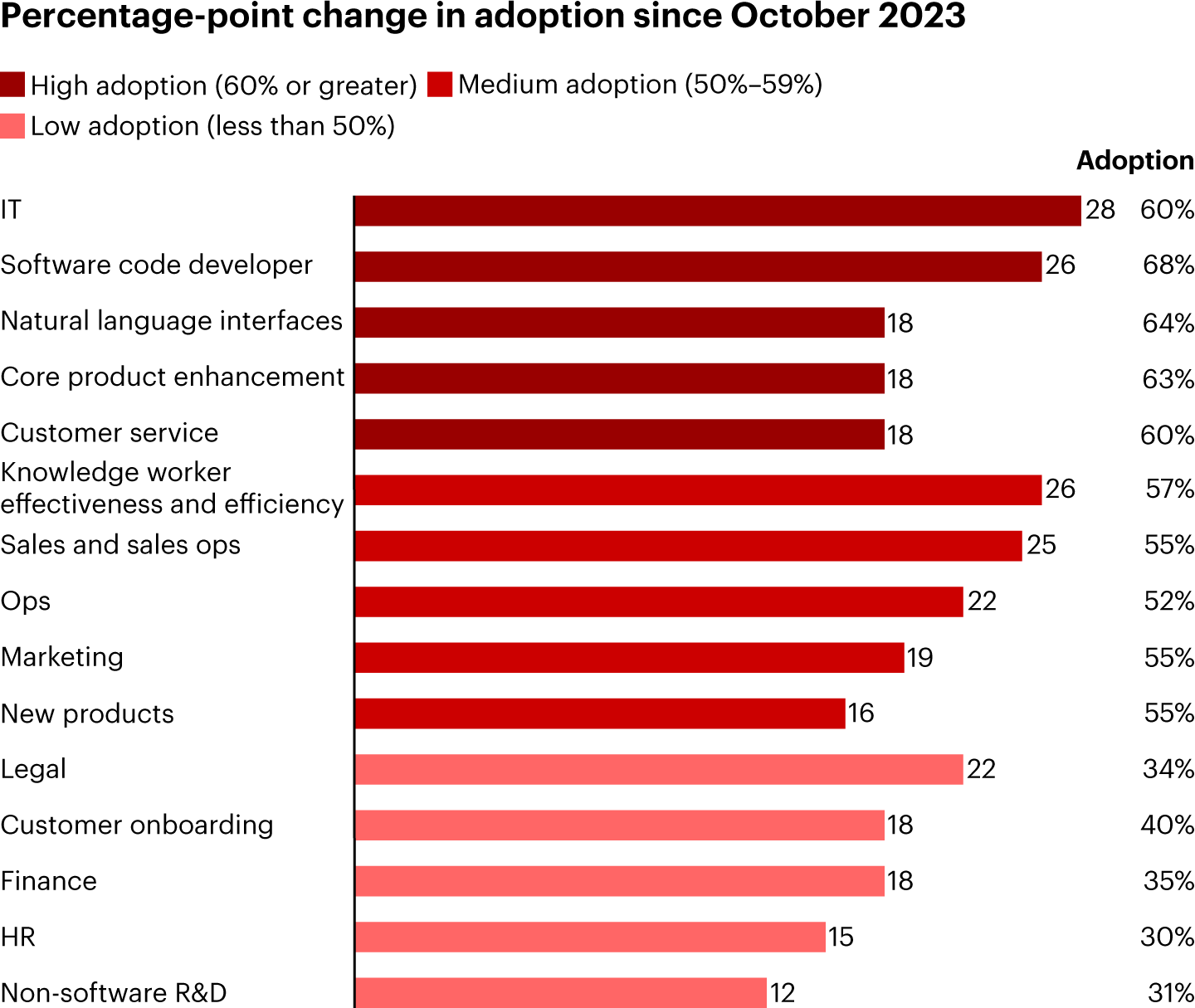

Top concerns slowing adoption: Data security, talent shortages, and output quality
Security and privacy concerns have grown, especially among firms leading the charge on generative AI (see Figure 3). Meanwhile, accuracy concerns are beginning to ease, suggesting that companies are gaining more confidence in generative AI’s outputs. Companies in the early stages of adoption are more concerned about organizational readiness and related roadblocks while those at later stages worry more about data security, privacy, quality, and accuracy. Finally, scaling remains a challenge, with 75% of companies struggling to find the in-house expertise they need across critical functions.
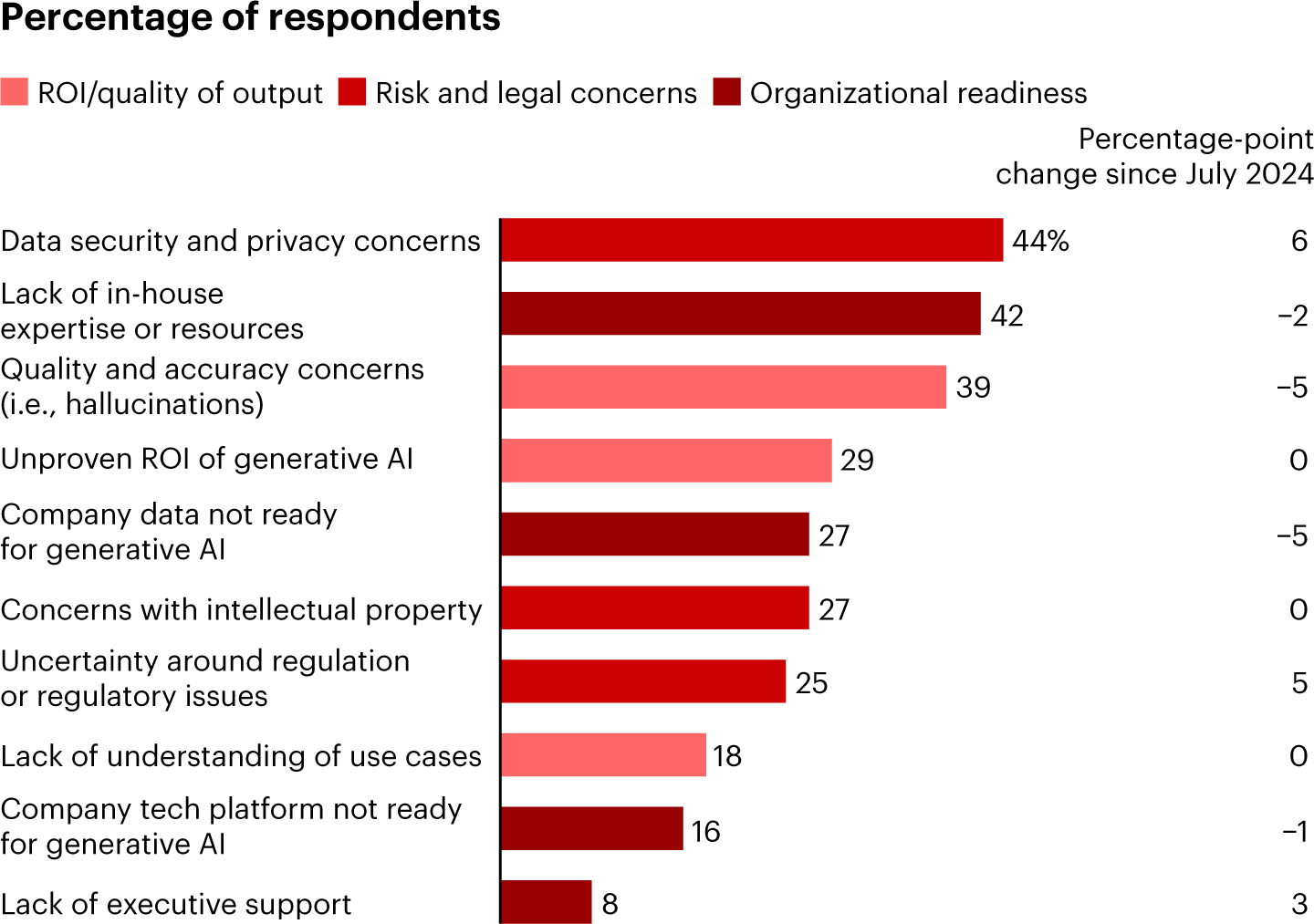

Note: Respondents chose top three reasons
Sources: Bain Generative AI Survey, July 2024 (N=184); Bain Generative AI Survey, December 2024 (N=199)Business results: Satisfaction and dissatisfaction
The early read on business results seems clear: Generative AI is delivering. More than 80% of reported use cases are meeting or exceeding expectations, and nearly 60% of those satisfied with AI’s performance say that it has also improved business results (see Figure 4). Among companies that have scaled generative AI solutions, about 90% say it has met or surpassed goals.
Among those disappointed with the technology, experiences differ between pilot users and those in production (see Figure 5). Both groups cite similar frustrations—poor performance and data incompatibility—but pilot-stage companies worry more about process redesign and leadership buy-in while those further along cite low-quality vendors, which are often hard to spot early on. As projects scale, internal pressures rise, and output quality issues become clearer, making growth tougher than expected.
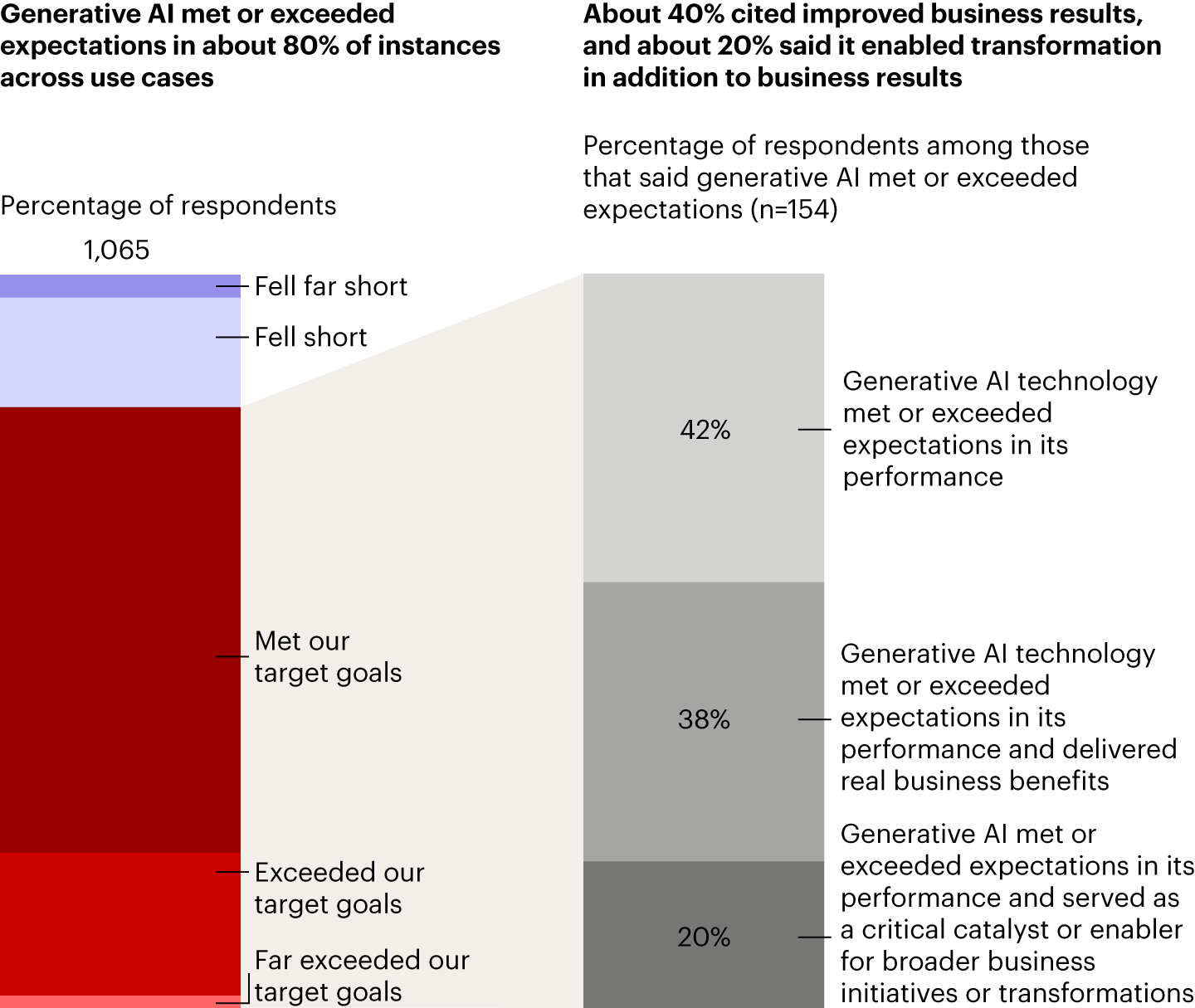

Note: The smaller sample size in the right-hand chart represents a subset of the total survey population—namely, those that said generative AI had met or exceeded their expectations
出所 Bain Generative AI Survey, December 2024 (N=199)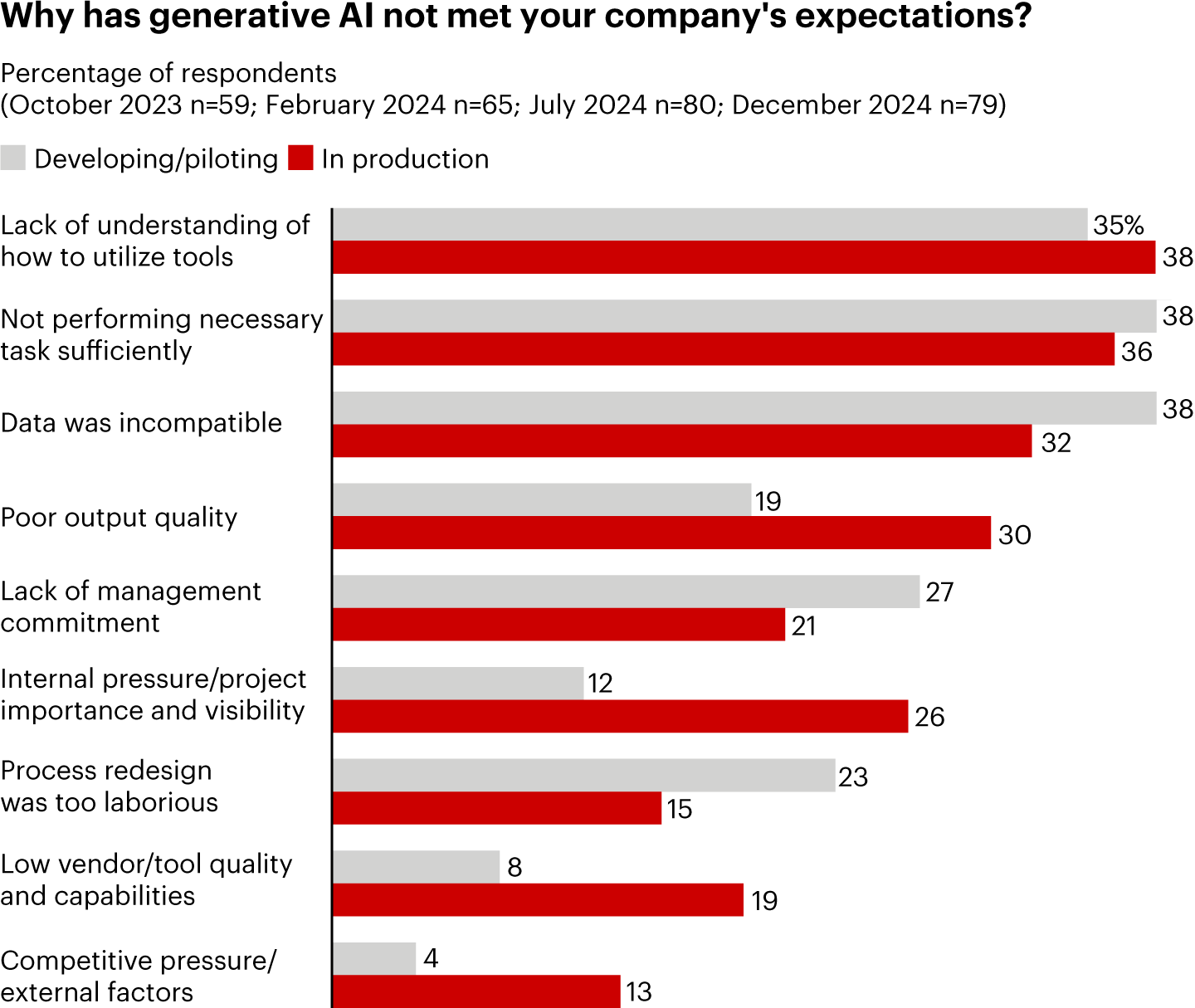

注 Respondents chose top three reasons; the smaller sample sizes represent a subset of the total survey populations—namely, those saying that generative AI fell short or far short of their expectations
Sources: Bain Generative AI Survey, October 2023 (N=198); Bain Generative AI Survey, February 2024 (N=200); Bain Generative AI Survey, July 2024 (N=184); Bain Generative AI Survey, December 2024 (N=199)Investment ramps up
Despite these hurdles, firms are making bigger financial and talent commitments to generative AI. Annual budgets have doubled since early 2024, now averaging about $10 million, an 102% increase over February 2024 levels (see Figure 6). More companies are integrating generative AI into standard operations, with 60% of programs expected to be funded through regular budget cycles.
Investment in people is scaling, too. Companies report that an average of 160 employees are now spending at least part of their time on generative AI, a 30% increase from just a few months ago.
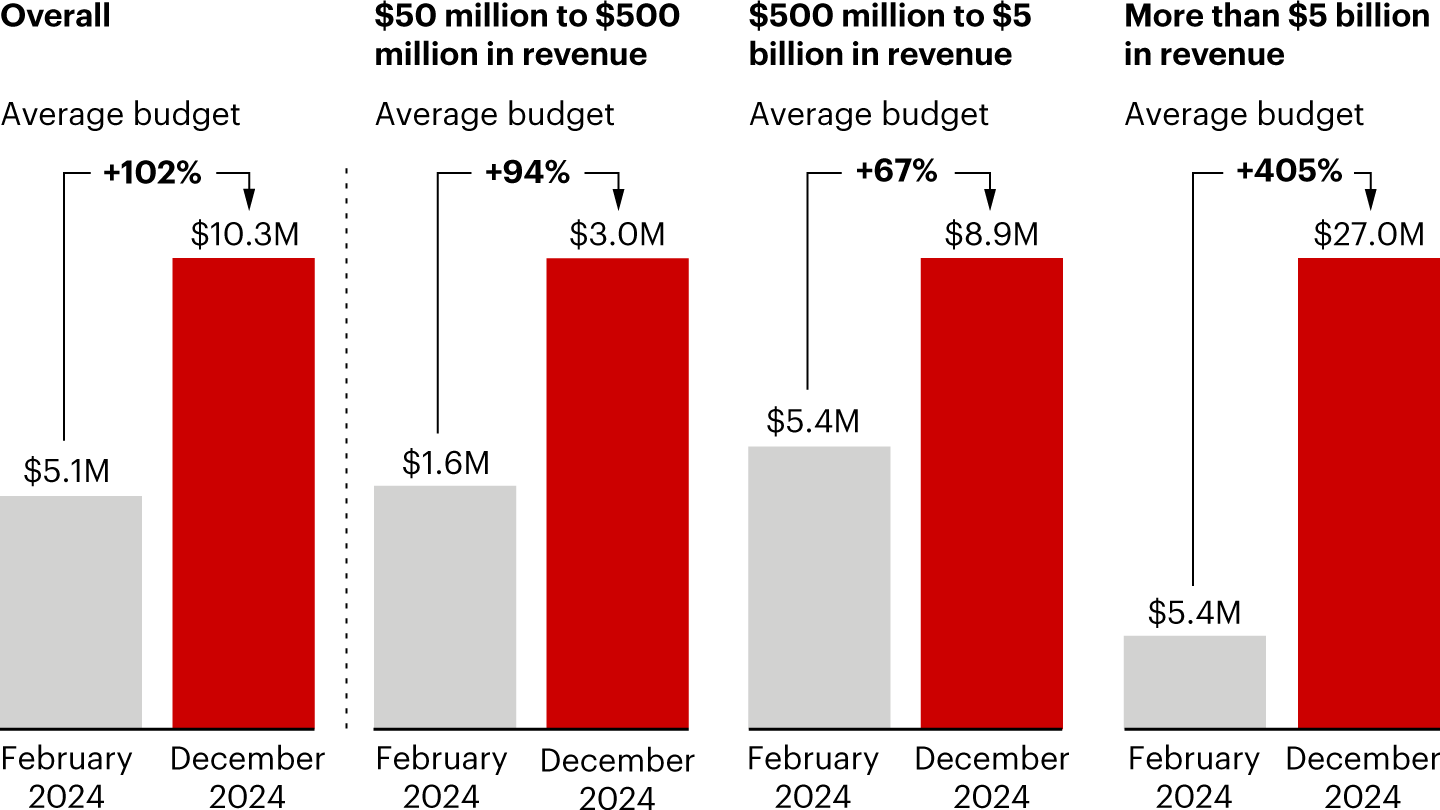

Note: “I don’t know” responses have been hidden
Sources: Bain Generative AI Survey, February 2024 (N=200); Bain Generative AI Survey, December 2024 (N=199)The momentum is undeniable. The challenge now is not just adopting generative AI but scaling it strategically, securely, and with the appropriate talent in place. The firms that figure it out first won’t just lead in generative AI; they’ll redefine their industries.

About IncQuery
IncQuery is a leading programming provider of quantitative surveys for primary research. Its collaborative co-authoring platform, combined with support from experienced survey directors, empowers professionals to quickly launch high-quality surveys. Visit incquery.com for more information.